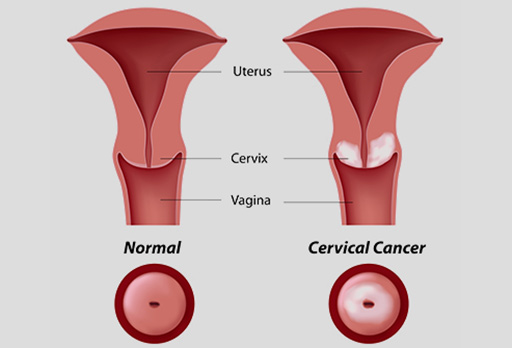All You Need To Know About Cervical Cancer
Cervical Cancer is a common cause of death in women. It’s important for every woman to know something about these diseases. This article contains all you need to know about cervical cancer.
What Is Cervical Cancer
Cervical cancer is a type of cancer that begins at the lower end of the uterus that contacts the upper vagina called uterine cervix. Cervical cancer is a common cause of death in women in most developing countries due to lack of access to screening and vaccines against human papillomaviruses(HPVs)
Cause of Cervical Cancer
The most common cause of cervical cancer is long standing infection with one of the papillomaviruses(HPVs). HPV infection is common, and not all HPV infection leads to cancer. There are many types of HPV, over 100 types and only a few types have been linked to cancer. Other HPV types usually cause benign warts on the genitals or skin. High-risk HPV has been proven to cause cancers of the cervix as well as cancers of the penis in men.
Sign and Symptoms of Cervical Cancer
Cervical cancer may not generate any signs or symptoms, mostly in its early stage. Symptoms may develop when the cancer cells start to attack surrounding tissues. Some of the signs and symptoms include abnormal vaginal bleeding, longer or heavier menstrual periods than usual, vaginal bleeding after sex, pain during sexual intercourse other abnormal vaginal discharge etc.
What are The Stages of Cervical Cancer?
The stage of any cancer is the extent to which it had spread in the body when it was diagnosed. Staging cancers are significant in determining the best treatment plan.
In general, the stages of cervical cancer are as follows:
- Stage 0: At this stage, the cancer is not truly invasive. The abnormal cells are only on the surface of the cervix, as in CIN 3. This stage is referred to as carcinoma in situ (CIS).
- Stage I: There is a small amount of a tumor that can be found but has not spread to any lymph nodes or distant sites.
- Stage II: cancer has gone beyond the cervix and uterus, but has not invaded the pelvic walls or the lower part of the vagina.
- Stage III: cancer has spread into the walls of the pelvis or the lower part of the vagina. A tumor may be blocking the urethras. Though, it has not spread to other sites in the body.
- Stage IV: This stage is the most advanced stage, in which cancer has spread to other areas of the body, like bladder, rectum.
Prevention of Cervical Cancer
Cervical cancer can be prevented with vaccination and use of modern screening techniques that detect precancerous changes in the cervix. Vaccines such as Gardasil and Gardasil 9 are available against HPV that cause cervical cancer.And the Pap screening to detect precancerous changes, which can be treated before they progress to become cancer, has reduced the cases of cervical cancer in the developed world.
Cervical cancer is common amongst women, it occurs in 13,000 women each year in the U.S., leading to about 4,100 deaths. This cancer can be treated if detected early. Women should go for cancer screening to prevent its occurrences.
REFERENCE
- American Cancer Society available at
https://www.cancer.org/cancer/cervical-cancer/causes-risks-prevention/prevention.html
Accessed on January 26 2018
-
- National Cancer Institute, NIH, HHS available at
www.cancer.gov - National Breast and Cervical Cancer Early Detection Program, CDC available at
www.cdc.gov/cancer/nbccedp - American College of Obstetricians and Gynecologists (ACOG) Resource Center available at
www.acog.org
- National Cancer Institute, NIH, HHS available at


















